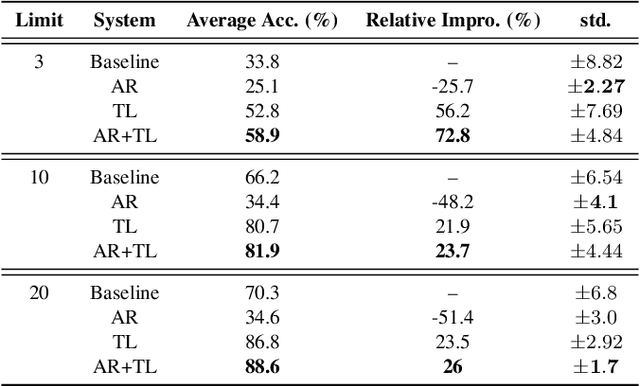A Study of Low-Resource Speech Commands Recognition based on Adversarial Reprogramming
Paper and Code
Oct 08, 2021



In this study, we propose a novel adversarial reprogramming (AR) approach for low-resource spoken command recognition (SCR), and build an AR-SCR system. The AR procedure aims to modify the acoustic signals (from the target domain) to repurpose a pretrained SCR model (from the source domain). To solve the label mismatches between source and target domains, and further improve the stability of AR, we propose a novel similarity-based label mapping technique to align classes. In addition, the transfer learning (TL) technique is combined with the original AR process to improve the model adaptation capability. We evaluate the proposed AR-SCR system on three low-resource SCR datasets, including Arabic, Lithuanian, and dysarthric Mandarin speech. Experimental results show that with a pretrained AM trained on a large-scale English dataset, the proposed AR-SCR system outperforms the current state-of-the-art results on Arabic and Lithuanian speech commands datasets, with only a limited amount of training data.
 Add to Chrome
Add to Chrome Add to Firefox
Add to Firefox Add to Edge
Add to Edge